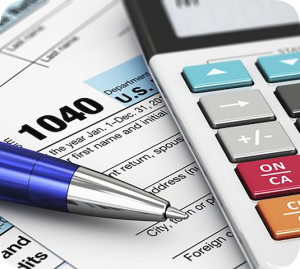 The coronavirus pandemic caused millions of people to lose their jobs last year and file for unemployment benefits, which were expanded several times through federal legislation. Now, many Americans are discovering that they owe taxes on these payments that were vital for them to make ends meet. For example, Erika Rose of Los Angeles has been on unemployment insurance since the start of the pandemic and has spent the winter stretching every penny to pay rent and utilities. When she recently sat down to do her taxes, she realized she owed the IRS big.
The coronavirus pandemic caused millions of people to lose their jobs last year and file for unemployment benefits, which were expanded several times through federal legislation. Now, many Americans are discovering that they owe taxes on these payments that were vital for them to make ends meet. For example, Erika Rose of Los Angeles has been on unemployment insurance since the start of the pandemic and has spent the winter stretching every penny to pay rent and utilities. When she recently sat down to do her taxes, she realized she owed the IRS big.
“I was so upset. How do I owe over $600 in taxes?” said Rose. “I have never been so fearful in my life of how I’m going to pay my bills.” Unbeknownst to many, money that is earned through unemployment is taxed like regular income. One study found that fewer than 40 percent of 2020’s unemployment beneficiaries had taxes withheld from their payments, meaning that they will likely owe the IRS this April. For those who have struggled to even buy groceries for the past year, it might be impossible for them to gather money to cover surprise tax bills.
Consumer advocates and some lawmakers are calling for these charges to be cancelled or at least reduced. “I don’t think we should be taxing unemployment insurance benefits, generally, but we really should not be taxing them during a terrible recession,” said Georgetown Law professor Brian Galle. “The right thing to do is just zero out unemployment insurance income from last year.” Unemployment insurance started getting taxed in the 1980s, with the argument being that jobless wealthy individuals should still pay taxes. “The basic theory is, everyone should pay tax on it as income. Just because they are unemployed doesn’t change that,” said economist Pete Davis.
Questions:
- Do you think people who collected unemployment in 2020 should have to pay taxes on that income? Why or why not?
- Why do Americans pay taxes on unemployment benefits?
